The Outstanding Service Award honors University of Michigan faculty or staff who embody the University’s commitment to the state’s largest city as exemplified by their distinguished service to the people and organizations of the city of Detroit.
Nominate an outstanding individual for the Outstanding Service Award.
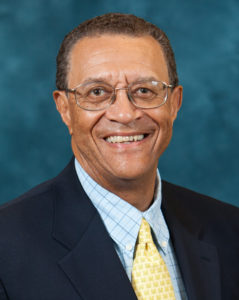
Dr. William Collins
William Collins is currently the Director of the Center for Educational Outreach at the University of Michigan. From 1992–2008, he served as Director of the Comprehensive Studies Program and as Adjunct Associate Professor of Psychology at the University of Michigan. William has previously served as the Director of the Learning Skills Center at Cornell University and as Staff Psychologist and Assistant Professor of Psychology at the University of Wisconsin-Stevens Point.
A native of Detroit, Michigan, Collins earned his bachelor’s degree and his Ph.D. in Psychology from the University of Michigan. He is a member of the Association for Psychological Science, the Society for Personality and Social Psychology, and the Society for the Psychological Study of Social Issues. He is also a member of the Executive Committee of the Council on Engagement of the Association of Public and Land-Grant Universities.
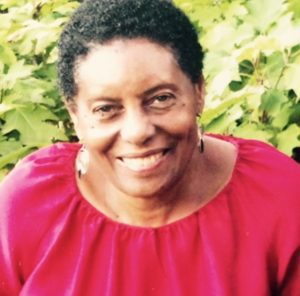
Dr. Gloria House
Gloria House, Ph.D., is Professor Emerita of Humanities and African American Studies at the University of Michigan-Dearborn, and Associate Professor Emerita in Interdisciplinary Studies at Wayne State University. She is the former Director of African American Studies at UM-Dearborn. As an educator and cultural worker, Dr. House has traveled widely – to Europe, the former Soviet Union, China, Africa, the Middle East, Central and South America and the Caribbean. Since her work as a SNCC field secretary in Lowndes County, Alabama in the 1960s, she has been an organizer in many human rights efforts, community development projects in Detroit, and international solidarity causes. Her publications include three collections of poetry, a book on spatial politics, Tower and Dungeon: A Study of Place and Power in American Culture, and Home Sweet Sanctuary, a study of Idlewild, Michigan, an historic African American settlement. An essay documenting her experience in the Southern movement is included in Hands on the Freedom Plow: Personal Accounts of Women in SNCC, University of Illinois Press, 2010.
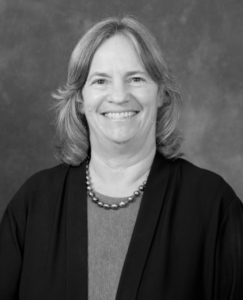
Dr. Barbara Israel
Dr. Israel is a Professor in the Department of Health Behavior and Health Education, School of Public Health, University of Michigan, and Director of the Detroit Community-Academic Urban Research Center (Detroit URC). She has published widely in the areas of: the social and physical environmental determinants of health and health inequities; the relationship among stress, social support, control and physical and mental health; and community-based participatory research (CBPR). Since 1995, she has worked together with academic and community partners to establish and maintain the Detroit URC. One of the goals of the Center is to foster and support the development of equitable community-academic partnerships focused on understanding and addressing health inequities in the city of Detroit. The Detroit URC has facilitated the establishment of numerous such CBPR partnerships affiliated with the Center, which are engaged in multiple research, intervention, policy and training projects. Dr. Israel is actively involved in several of these CBPR partnerships and projects examining, for example, the environmental triggers of childhood asthma and strategies for reducing them, the development and implementation of a public health action plan to improve air quality and health, the social and physical environmental determinants of cardiovascular disease, the impact of physical activity interventions on cardiovascular health, the translation of research findings into policy change, and capacity building for conducting CBPR.
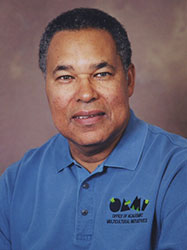
John Matlock
John Matlock is a former Associate Vice Provost of Academic Affairs and former Executive Director of Academic Multicultural Initiatives.
As Director of the Office of Academic Multicultural Initiatives (OAMI), Dr. Matlock managed research programs, multicultural activities, pre-college initiatives, student leadership training, and academic enrichment activities. The OAMI involved a large number of students with its own programs and supports student-initiated academic and multicultural programming. As Assistant Vice Provost, he provided leadership in developing and implementing the multicultural goals of the University and maintained active relationships with the Ann Arbor/Ypsilanti and Detroit communities.
Prior to returning to the University of Michigan in 1990, Dr. Matlock served nearly a decade as chief of staff to U.S. Representative John Conyers of Michigan and U.S. Representative Harold Ford of Tennessee. Dr. Matlock was also Director of Institutional Research and Planning at Tennessee State University and Director of the University of Michigan’s Community Relations Office. He received his B.S. from Ferris State University, and his M.A. in Journalism and Ph.D. in Higher Education both from the University of Michigan.
Dr. Matlock has traveled extensively, particularly in West Africa and the Caribbean. He is actively involved in writing and research activities, as well as political consulting. A strong believer in grassroots politics, he is particularly interested in helping communities and social organizations develop strategies to strengthen their political effectiveness.

Henry Meares
Dr. Henry O. Meares is an educator whose professional experiences span more than 38 years in K-12 and higher education. He received his doctorate and master’s degrees in curriculum and administration and elementary education and curriculum development respectively from the University of Illinois. He earned his bachelor’s degree in elementary education from Fayetteville State University. Over the years Dr. Meares held principal positions in junior and senior high schools. He has both been nominated and won principal of the year for both middle and high schools in the State of Illinois, as well as being named national principal of the year for his work there. In Detroit, he was named ex officio and co-chair for the educational transition team.
Dr. Meares was one of the founders of the Michigan Middle Start funded by the Kellogg Foundation. This initiative has been implemented in more than seventeen states throughout the nation. He served as a consultant for the Kellogg Foundation and the American Education Development. He has worked extensively with several Detroit high schools, assisting in the design of ninth grade “ academies” designed to ease the transition from middle to high school.
Currently, Dr. Meares holds the position of Assistant Dean for Recruitment, K-16 Relations, and Special Projects at the University of Michigan.
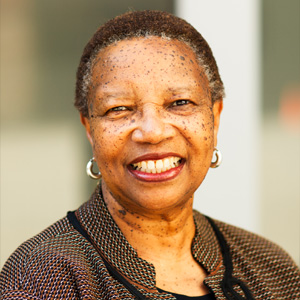
Gloria Taylor
Gloria Taylor began her career in higher education in 1990 after working as the Director of Admissions and Financial Aid at Friends Schools in Detroit. She transferred the skills, experiences and relationships from this position to recruiting students from the greater Detroit and Chicago areas, serving as the inaugural director of the University of Michigan Detroit Admissions Office for seven years.
In 1997, Gloria moved to the Office of Academic Multicultural Initiatives to direct the King Chavez College Day program, under the direction of Dr. John Matlock. In this position, Gloria hosted over 2,000 middle and high schools annually that attended day and weeklong visits in an effort to promote higher education to underrepresented students in southeastern Michigan.
In addition preparing middle and high schools students for higher education, Gloria also worked very closely with University of Michigan college student leaders to develop academically and professionally. Many of these students have continued their interest and passion in working with pre-college students in advanced degrees such as Masters and Ph.D. degrees in Social Work and Higher Education.
Gloria has directed the Office of Academic Multicultural Initiative since 2013.

